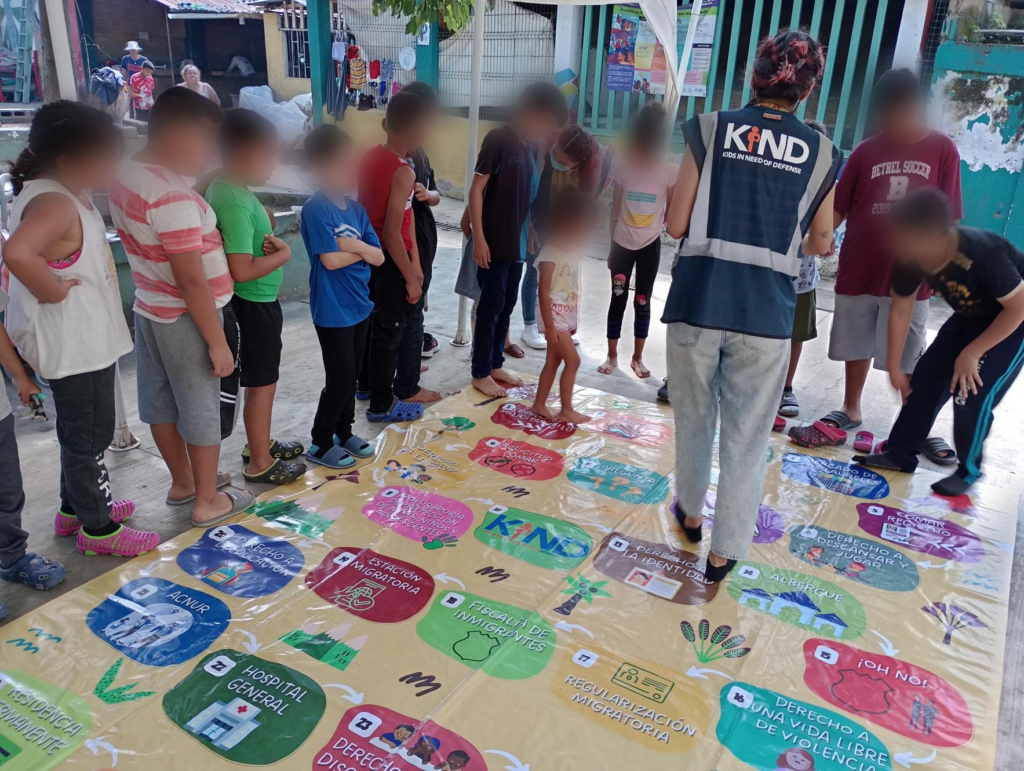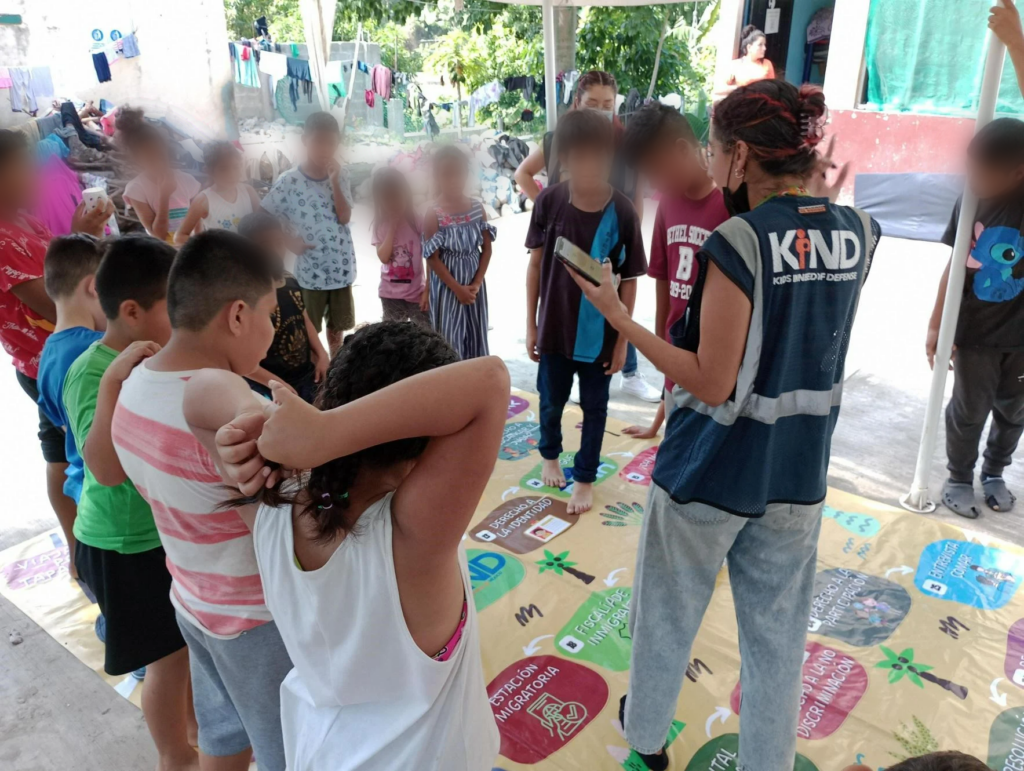The shelter I visited is made up of a series of small low-slung buildings that house migrants, with an outdoor common area in the middle where migrants gather in groups. The day I visited, a KIND lawyer and a KIND psychologist conducted a Know Your Rights activity with about 25 children under the age of 14, mostly from Honduras, El Salvador, and Nicaragua. One nine-year-old girl brought her eight-month-old sister. The children’s energy was palpable; they were thrilled to have visitors, particularly from KIND as we had been to the shelter numerous times before and were familiar, friendly faces.
The KIND lawyer led a game show style Know Your Rights question game with the children. It was wonderful to see how happy the kids were to be together and how excited they were to participate. I was so impressed with the children and their answers. KIND’s staff member asked, “What can you do if you file for asylum in Mexico and Mexico denies your request?” “Get a lawyer,” one kid shouted. “Ask to speak to a judge,” said another. When the staff member asked, “Who can name some of the rights you have in Mexico?” kids’ answers included, “The right not to be discriminated against,” and “the right to asylum.” One girl who appeared to be about eight years old said, “The right to feel safe in my body.” The kids’ answers made me so proud of the Tapachula team and the progress they made helping children learn the answers to these difficult questions.


